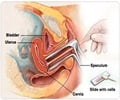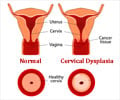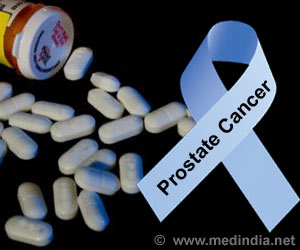Vaccination against the Human Papillomavirus (HPV) can prevent cervical cancer deaths, say experts.

"The free vaccination was launched in 2007 in Australia and 85 percent of those vaccinated have shown improvement," Wain, director of the hospital's Gynaecological Oncology Unit, told IANS.
"The vaccine programme has been very effective and successful and the results have shown dramatic reduction in genital warts, which is the initial manifestation of the HPV infection. Cancer develops in 10-20 years if left untreated," said the specialist, who has been invited to India by the capital's Sir Ganga Ram Hospital.
In India, cervical cancer is a "huge public health problem" and the vaccine "seems to be a very significant way to prevent the disease", Wain said, adding that the vaccine has been approved by the US Food and Drug Administration and in Europe.
It is "disappointing that India is not adopting it", Wain said.
Anupam Sachdeva, a senior oncologist at Sir Ganga Ram Hospital, said cervical cancer is the biggest killer among women compared to breast cancer.
Advertisement
"Nearly 7.3 percent of India's total population is HPV positive," he said.
Advertisement
"It is very important that the Indian government realises the delay in introduction of the vaccine, which is a primary prevention programme," said the specialist.
The vaccine is a "quadrivalent vaccine", he said, explaining that it tackles two viruses for cervical cancer and two for genital warts.
He said the vaccination should be done in a phased manner so that the immunisation coverage is high.
"Unfortunately the majority of women report in the last stages of the disease. The pap smear technique is not working well. When they report in the last stages of disease, the morbidity and mortality is much more," he added.
He said that women do not usually address their health issues as much as men. "They always put families, children and husband before their own health," he said, adding that the cost of the lives lost is so high that the prevention programme should be opted for.
"The cost of life years lost, of life snuffed out at 38-39 years age of women who could have lived on until 75 years, is very high. Women are the centre of the family, children are affected... we should also take in the psychological effect of cervical cancer deaths."
Over 80 percent of women newly diagnosed with cervical cancer live in developing countries and most are diagnosed when they are in an advanced stage of the disease.
The World Health Organisation has recommended that regular screening and routine HPV vaccination should be included in national immunisation programmes and that prevention of cervical cancer or other HPV-related diseases, or both, should constitute a public health priority.
Virtually all cervical cancer cases (99 percent) are linked to genital infection with human papillomavirus (HPV), which is the most common viral infection of the reproductive tract
Source-IANS















